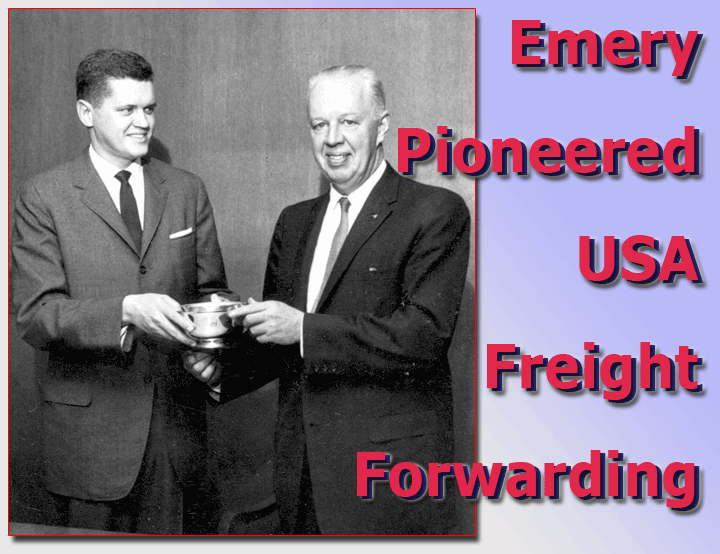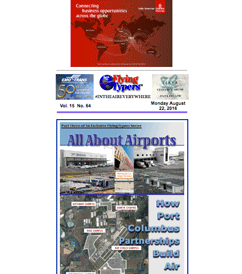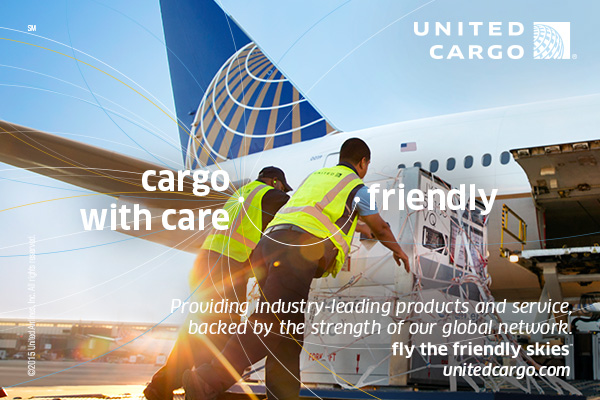 |
 |
 #INTHEAIREVERYWHERE |
| Vol. 15 No. 65 | Thursday
August 25, 2016 |
 |
The
on-again, off-again Britain-to-Amritsar flight route
was in the news recently when a crowd-funded new airline,
POP (an acronym for People Over Profit), sent out a
message that it planned to be the first airline to operate
non-stop flights between the UK and the cities of Amritsar
and Ahmedabad in the states of Punjab and Gujarat. Here Comes The Judge The carrier hopes to open new trading links between Britain and India and has already started reaching out to air cargo operators. Said Navdip Singh Judge (Nino), Chairman and founding partner of POP: “The vision behind POP is one of making a genuine and positive difference to the communities we plan to serve. We aim to do that by opening up new routes between the UK and India and by providing new opportunities for growing businesses in Punjab and Gujarat to engage in worldwide trade in a way that has previously been impossible for them.” As Much Profit As Possible Mr.
Judge said that he had positioned cargo in his business
plan “to make as much profit as possible to enhance
our profitability and hence donate to good causes”
because there was a “huge trade potential between
India and UK and offering cargo will facilitate this
trade.” He said that he was optimistic about the
talks between the UK and Indian governments about a
possible preferential or free trade agreement following
the Brexit decision. This, he said, “makes us
even more confident about the cargo opportunities that
POP can look forward to.” Interest Running High “We
have already had very good interest from vendors who
want to take advantage of the shorter flight times to
cargo perishables like fruits,” Mr. Judge said.
Fabric of Plan Is Exports From
Ahmedabad, POP hopes to take fabrics, jewelry and gemstones,
chemicals, cars, and pharma. What Infrastructure? Undeterred
by the infrastructure problems, Judge said that cargo
facilities will “develop if there are flights.
It is a chicken-and-egg situation.” Start and Stop Ups Over
the last ten years, a number of flights by international
carriers were started only to be discontinued after
a few months. |
A
man looks out over the runway from the main viewing
room as South African Airlines’ (SAA) jets prepare
to take off from the main runway at OR Thambo International
Airport, Johannesburg, South Africa, last week. |
 |
Saw Info
Tech As Key 20 Years Ago . . . John Radziwill,
who headed Radix Group International in 1997, disclosed
that “within the orbit of Radix, computer utilization
plays an increasingly vital role in maintaining a fluid
distribution system on behalf of the exporting and importing
community of which air carriage is an essential part.
The Need
For Partnerships . . . Brian P. Barrow, Cargo Network
Service’s (CNS) board member, stated in a 1991
editorial:
Emerging
Forwarder Medium Well Done
. . . Roger A. Haack, president, Greene Companies International,
Inc. reported in 1985
that “an important new trend is developing in
the United States air freight industry—the re-emergence
of the medium-size cargo agent as a significant factor
in moving goods overseas.”
Vital Views Part I, Click Here. |
Our
reasoning behind looking as far back as 50 years ago
to see what the leading thinkers of air cargo were
saying and doing to build this industry is to offer
some balance and perspective as air cargo surges forward
in 2016.
|
Our
conversation with Barry Hansen brings to light mention
of John Emery, Sr. |
 |
If
You Missed Any Of The Previous 3 Issues Of FlyingTypers
Access complete issue by clicking on issue icon or Access specific articles by clicking on article title |
||
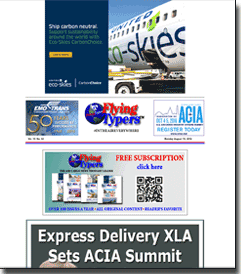 Vol. 15 No. 62 Express Delivery XLA Sets ACIA Cooling Their Brakes Chuckles For August 15, 2016 Is Freightos The Next Big Thing? InstaClassic Chicago Not Lion—This Really Happened |
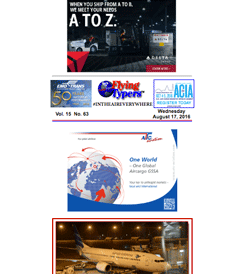 Vol. 15 No. 63 Closely Watched Planes Giant Korean Flies Niches Chuckles For August 17, 2016 Cambodian Rail Back On Track 41 Years Vital Views Great Airports Worldwide |
|
Publisher-Geoffrey
Arend • Managing Editor-Flossie Arend • Film Editor-Ralph Arend • Special Assignments-Sabiha Arend, Emily Arend • Advertising Sales-Judy Miller |
|




 Here in Part II of Vital Views we
continue our series of thoughts generated by individuals
that have appeared in our pages since we began
publishing in 1975.
Here in Part II of Vital Views we
continue our series of thoughts generated by individuals
that have appeared in our pages since we began
publishing in 1975.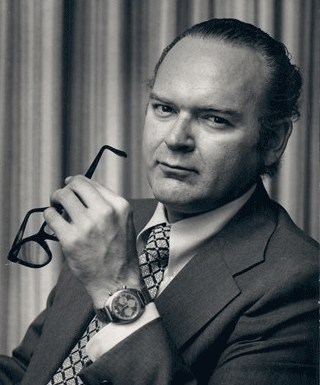 New
Deal Forwarders . . .The late George A. Shipman
(2010, age 73), was a management consultant and
air cargo industry veteran (AA Cargo 25 years),
with a particular wit and wisdom who for us in 1986
trained the spotlight on the cargo agent.
New
Deal Forwarders . . .The late George A. Shipman
(2010, age 73), was a management consultant and
air cargo industry veteran (AA Cargo 25 years),
with a particular wit and wisdom who for us in 1986
trained the spotlight on the cargo agent.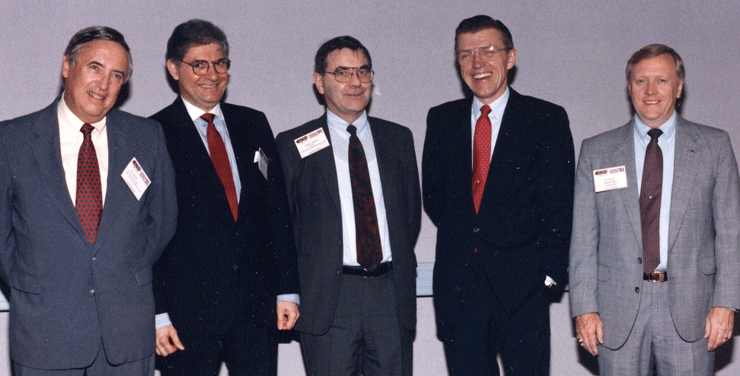
 Send
Customs Just The Fax . . . In 1990 Joseph Le
Louarn, regional director of Customs at Roissy,
France, addressing a Manhattan audience
of international traders, advised American shippers
to his country to “lend speed to the transmission
of information concerning the movement in order
to free all or part of the shipment as soon as it
is unloaded at Paris’ Charles De Gaulle Airport.”
Send
Customs Just The Fax . . . In 1990 Joseph Le
Louarn, regional director of Customs at Roissy,
France, addressing a Manhattan audience
of international traders, advised American shippers
to his country to “lend speed to the transmission
of information concerning the movement in order
to free all or part of the shipment as soon as it
is unloaded at Paris’ Charles De Gaulle Airport.”
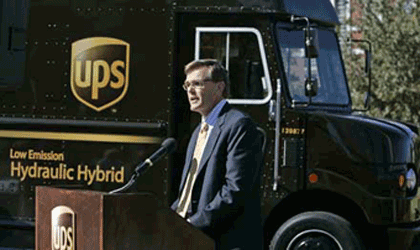 Growth
Overcomes All Obstacles
. . . David Abney chief operating officer – UPS
and president, UPS Airlines in 2007,
offered these words of change and challenge: “The
air cargo industry has seen much change and many challenges
in the past year.
Growth
Overcomes All Obstacles
. . . David Abney chief operating officer – UPS
and president, UPS Airlines in 2007,
offered these words of change and challenge: “The
air cargo industry has seen much change and many challenges
in the past year. 
